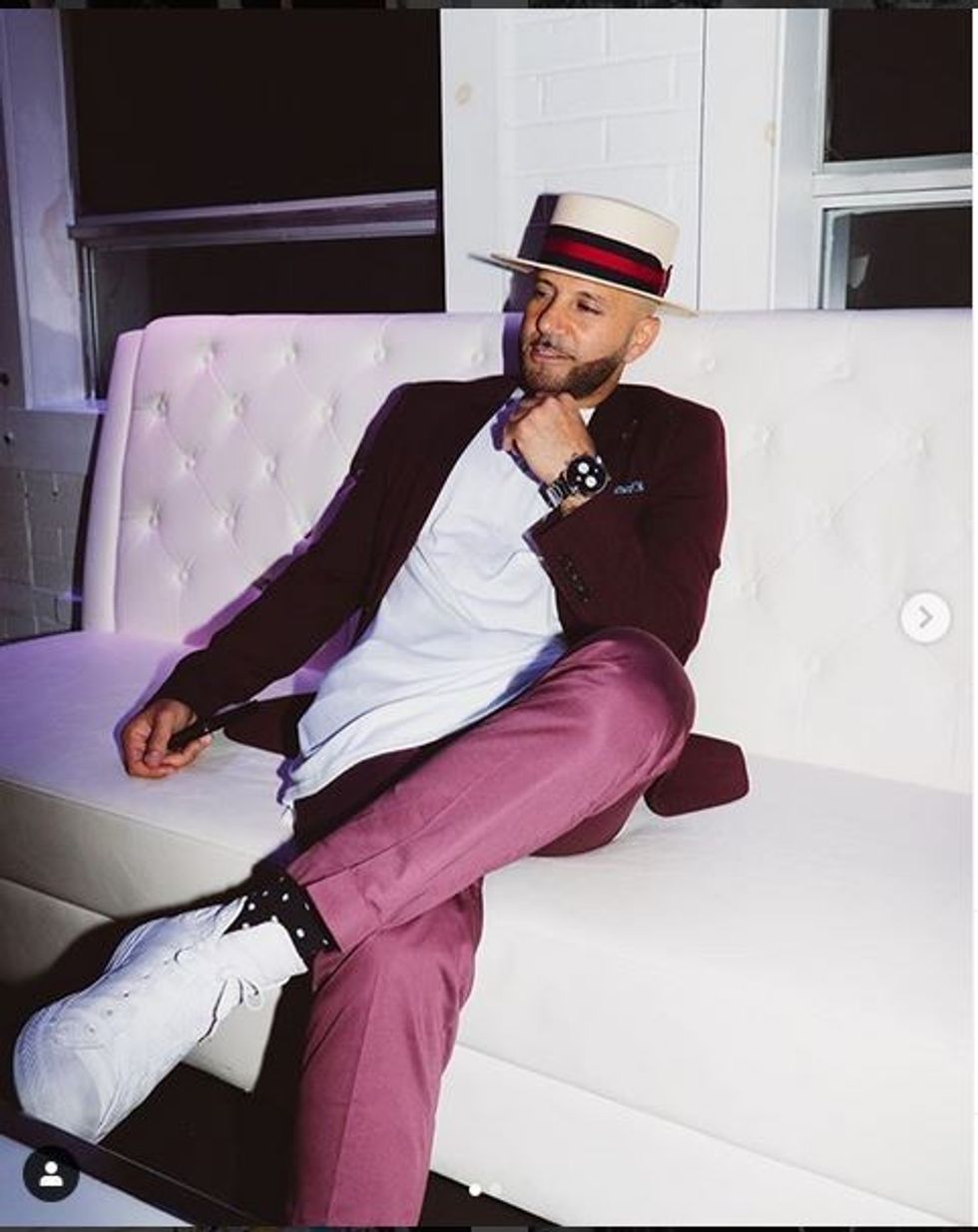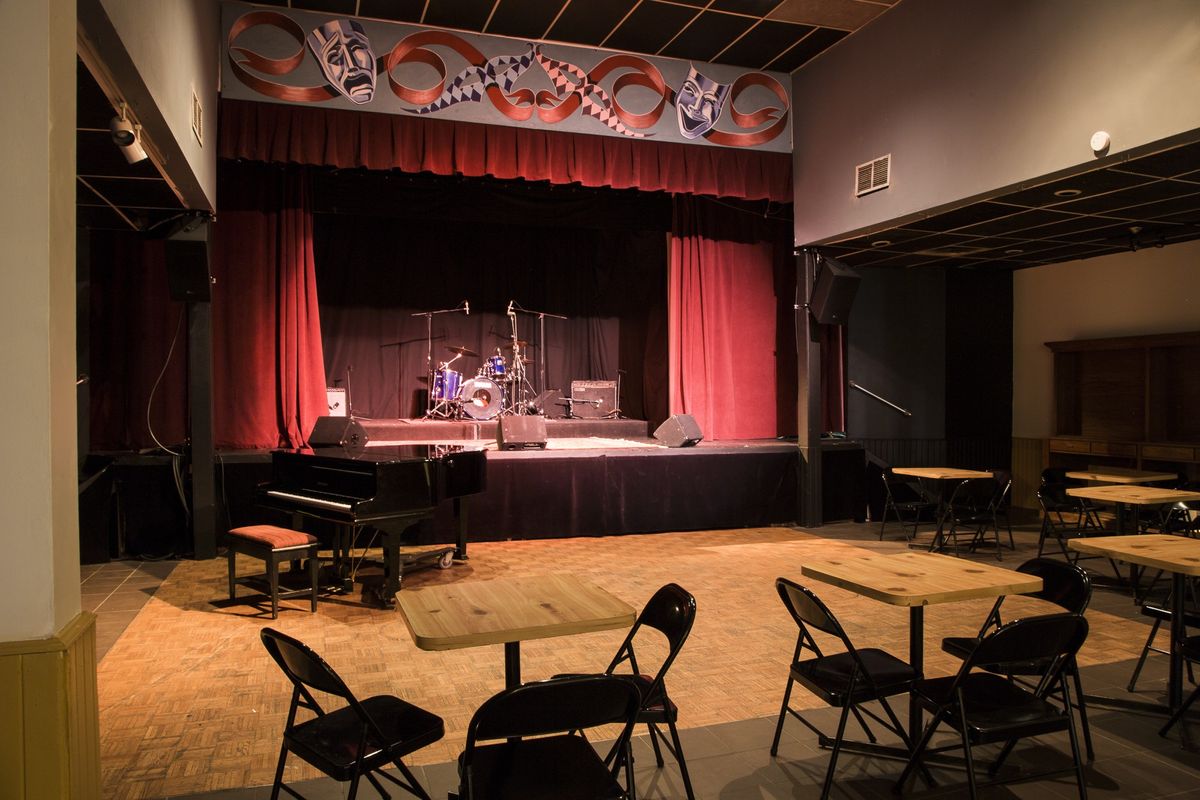A Conversation With .. Karl Wolf
It's a wild west outside of the safe confines of the home recording studio. Where does your best work go after that?

By Bill King
It's a wild west outside of the safe confines of the home recording studio. Where does your best work go after that? Karl Wolf is on to something and, in this interview, he explains how he goes about fighting the good fight. Two worlds merge within Wolf's actionable music economy. One, the focused efforts on behalf of the music, secondly, persistence in marketing. It's the small pieces that fit together to make the emerging product pay dividends.
"Karl Wolf is a Canadian musician raised in Dubai and based in Toronto. He has been a singer, songwriter and producer since 2001, releasing his first solo album Face Behind the Face in 2006 which was nominated at the Juno Awards for Best R&B Soul Recording, followed by a second album Bite the Bulletin 2007 which included Karl's international hit single Africa which sold over 1 million units worldwide and spent eight weeks at #2 on the Billboard Canadian Hot 100. Africa gained quadruple-platinum status in Canada, reached #1 on iTunes, #1 on A.C. Radio, #1 on Hot A.C. Radio, and as a result, Karl had won a 2008 MTV Europe Music Award. Wolf had followed up this success by releasing chart-topping singles and gold records such as "Carrera," "Yalla Habibi," "Mash It Up feat. Juicy J" and "Ghetto Love feat. Kardinal Offishall", which can be found on Wolf's album Finally Free. Going back to his R&B roots for his album Stereotype, he worked with megastar producer Timbaland on his song Magic Hotel" amongst some other prominent artists such as Fatman Scoop as well as Canada's own Classified. In 2015, Karl co-wrote OMI's Hula Hoop.
This was followed by the signing of a worldwide publishing deal with BMG Publishing through Zach Katz. 2016 proved to be another successful year for K.W. with the release of his EP entitled The Export Vol. 1 which included the hit single, Amateur At Love feat. Kardinal Offishall. The single landed in the top 10 on the iHeart Radio Charts and is also certified Gold. Besides, Karl recently teamed up with 3-time Grammy Award winner Nelly and was a renowned producer of the worldwide hit single Thunder by Imagine Dragons. Jayson Dezuzio, to create his international single Way Low, which is part of the recently released EP, Blacklight (The Export Vol 2). "
Bill King: How have you been with quarantine?
Karl Wolf: It was smart but hard.
B.K: I'm thinking Raptors in the bubble in Orlando looking at the same guys every day.
K.W: I'm looking at the same guy every day in the mirror. It's all I do. It was tough, but I'm trying to enjoy and take advantage of the summer. We are one of the smarter peoples. I think everyone understood and knew what was going on and said, let's be safe. Even with patios, I think it's incredibly smart. We aren't opening like in Quebec.
B.K: The early stages made it near impossible to sleep.
K.W: What was weird was the popularity of Netflix and all of these quarantine movies – like really – why would I want to watch that?
B.K: A lot of folks early March were sitting around their 50" tv screen eating, watching and waiting then one day decided, "I've got to get busy." For musicians, a great time to write and experiment.
K.W: Here's how it happens for me. When Covid hit with the scare, I couldn't even create. I have a studio at home, and I was trying to develop something, but it was hard with all of the anxiety – the uncertainty of seeing family. It was new and truly hard on people. I still went into the studio, but I made parody songs. I was poking not fun at it but lightening the mood. I did a parody of Whole New World – Corona World, put of Facebook. People loved, and it kind of went viral in its own way. I did one of Doja Cat – Say So I called Stay Home, which went viral on TikTok – people had a good laugh and good time with it. That kind of eased me into getting back to writing my kind of serious music.
B.K: You have this new single connected to Kardinal Offishall.
K.W: Yes, a new single Wolf in the Night. It's a singles world now. People just want good music all of the time. The game has changed. The same person back in the day would be into just hip-hop itself. Today someone who likes hip-hop can like country as long as it's good. That's what Spotify has done.
B.K: Spotify works great for those in radio; it's an open ear to the world. The playlists give you an inside view of what others are doing around in the genre you work from; It only ups your game.
K.W: Absolutely. It's great for artists who haven't been recognized. I think that's what Spotify and this new age stuff have done. For those who are established and made their mark, it's not the same. In the minds of the big artists, it was better before. There were CDs sold, and they were the only ones selling in volume. It's true, the market is congested, and the cream will rise to the top. And that's good: We can discover new and phenomenal talent. There are millions of artists on Spotify.
B.K: The first instore CDs I remember cost $35 each. L.P.'s were selling anywhere from $6.98 to $9.98 in small mom and pop stores. The point is the industry-recognized the cost of producing both was in the neighbourhood of $2.25 – consequently, CDs sold at a ridiculously inflated price $14.99 - $22. You knew with encroaching technology, the bubble would eventually pop.
K.W: I remember a moment with me and Randy Lennox, now head of Bell Media, the one who signed me to Universal Music, together on a flight discussing Napster. I remember asking, "what are you guys going to do?" And Randy is admitting they didn't know at that point. It was a scary moment.
At the end of the day, and I always remind young artists, it's a business for them. You can love Napster all you want, sharing or stealing or whatever you want to call it, if the record companies aren't making money they aren't investing money. No one is going to invest in you if we don't find a solution. Streaming came along – honestly, Bill, phenomenal. I own all of my catalogues now. We have almost 200 songs and, man, I make a check every two weeks from plays in Sweden – wherever you want, it's incredible. We make a living off our music now. It's really cool.
B.K: The beauty of now – we used to have to find an investor or pay $175 an hour and tape costs on top to record a handful of songs. We have home studios that, in many ways, are superior to most mid-size studios of old.
K.W: You can control your music. I'm managing my art. I don't have to go through any red tape. There are still rules around releases. You have to wait three weeks until Spotify puts it up and their editorials. And if they decide to put you on New Music Friday. Some rules, but generally, I can do what I want. Check this out! If the song doesn't work, move on. Not like working radio – we've got to work it harder – take time, keep at it for six months. Next, next – it doesn't matter. Music is supposed to be shared.
B.K: That collective spirit…
K.W: I was with EMI, Universal. A lot of record companies. I remember them saying,' Karl, you've got to take a break – you need to take two years off from music.' I think that's crazy. I'm coming from the new generation. Tell me, Bill, today who'd take a break from music? What does that even mean?
B.K: Does Drake take a break?
K.W: And he's a billionaire. He's the biggest artist on the planet. Honestly, when they told me that, me, maybe a hothead, a young guy with no experience, my gut was telling me, "that's wrong, Karl." Disappear? It doesn't make sense. I was right! Don't disappear because you will vanish. People will forget you. You know why? New artists are coming every day, and some are as good or better. Also, the trend is moving away from you.
B.K: The single?
K.W: I always wanted a song that was descriptive of my name, I've got tattoos of wolves – Red Riding Hood is my publishing company – Long Wolf Entertainment is my record company; I love the whole wolf theme. There was a movie called Teen Wolf when I was a kid with Michael J. Fox – the shortest guy on the team but the fastest on the basketball team. In my high school basketball team, I was the shortest, and the called me "The Wolf," and that's how I got my name. I try to make a wolf song on every album. It never worked. It came out a little contrived. This one – perfect – a sexy summer song – "I'm going to make you howl like a wolf in the night," love it. Kardi and I have three gold records together – three different singles- three for three. We haven't seen each other in five or six months because of the quarantine; it's our time. Kardi's a national treasure.
B.K: Did you send stems and basic parts back and forth?
K.W: He doesn't like to go into the studio with other people. His vibe is to send me the track, and I'll work in my studio in my own time. He sends me the stems back, and I mix them in and boom!
B.K: Working at home on your own is relaxing.
K.W: Africa and all of those songs from the beginning of my career as a solo artist, I've been recording from home. I mixed and recorded Africa, produced A-Z, I did every single. I've had twenty Gold and platinum records, and I've made them all the same way.
B.K: Who outside your arena? Would you love to work with?
K.W: I've got to know Akon for ten plus years. We've toured together six times, good friends and close. I've never had a chance to work with him. We went into the studio once, and it didn't click. He was working on something else. My wish list – Billie Eilish is incredible. If you can dream, dream big!

















